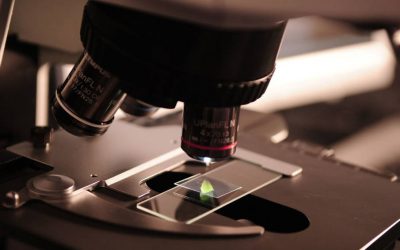On Monday, the Bush administration declared itself “unequivocally opposed” to human cloning, whether for stem-cell research or reproduction. “The moral and ethical issues posed by human cloning are profound and cannot be ignored in the quest for scientific discovery.”
The premise here is apparent: until a scientist can satisfy the religiously minded, the scientist cannot proceed. Science functions by permission of religion. On this premise, we would not have anesthesia, birth control, or, arguably, the wheel.
In a free society, the principle is not: ban everything, then allow a few exceptions. Rather, the government cannot ban anything except acts that violate individual rights.
But whose rights would be violated by human cloning?
If the cloning is used for research, the product is a microscopic group of cells. One could argue about the status of a fetus in the late stages of pregnancy, but there are no rational grounds for ascribing rights to a clump of cells in a Petri dish.
If the cloning is used for reproduction, the result is a baby who exactly resembles, physically, someone else. Again, whose rights would that violate? If no one’s, what is the justification for government even to consider stepping in to ban it?
If you were cloned today, nine months from now a woman would give birth to a baby with your genetic endowment. The cloned baby would be your identical twin, delayed a generation.
Twins of the same age do not frighten us, so why should a twin separated by a generation?
Some fear the specter of mass cloning of one individual, especially cloning of sadistic monsters, as in “The Boys from Brazil,” Ira Levin’s nightmarish projection of cadres of young Hitlers spawned from the dictator’s genes.
The error here is philosophical: equating a person with his body. A person’s essential self is his mind–that in him which thinks, values, and chooses. It is one’s mind, not one’s genes, that governs who one is. Man is the rational animal. One’s basic choice is to think or not to think, in Ayn Rand’s phrase, and the conclusions, values, and character of individuals depend upon the extent and rationality of their thinking.
Genes provide the capacity to reason, but the exercise and guidance of that capacity is up to each individual, from the birth of his reasoning mind in infancy through the rest of his life.
Neither genes nor environment can implant ideas in a child’s mind and make him accept them. Only his own self-generated thinking–or his default on that responsibility–will shape his soul.
Cloning the body will not clone the mind. A mind is inescapably under the individual’s own volitional control. “The Boys from Brazil”? It was not Hitler’s body but his choices that made him a monster.
The worry about this kind of problem cannot account for the virtual panic over human cloning, nor for the fact that the anti-cloning clique opposes human cloning across the board, in any quantity, for any reason.
The actual opposition to human cloning springs from something primordial, the fear of the unknown, the fear captured in the catch-phrase: “We can’t play God.” But why can’t we? We can and we must.
A surgeon “plays God” whenever he removes a cancer or an infected appendix rather than letting the patient die. We “play God” anytime we use our intelligence to improve the “natural” course of events. Natural? It is man’s nature to “play God” by reshaping matter to produce the food, shelter, tools, cars, and power stations that sustain and enhance our existence. Not to “play God” in this way means to abandon the struggle for human life and submit uncomplainingly to whatever happens.
Stem-cell research holds the promise of major breakthroughs in saving actual human lives–yours and mine. The potential human being that could, in principle, be produced from the cells in that Petri dish is just that: a potential person, not an actual one. The idea of banning such research to sacrifice actual lives to potential ones is wrong morally and politically.
At the threshold of a wide range of earth-shaking biomedical advances, we must not let irrational fears of the new slow progress in the battle to enhance and extend human life.
Copyright Ayn Rand Institute. All rights reserved. That the Ayn Rand Institute (ARI) has granted permission to Capitalism Magazine to republish this article, does not mean ARI necessarily endorses or agrees with the other content on this website.




